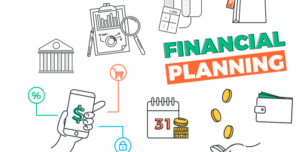One of the most important things you can do to become financially independent is to understand credit. Whether you want to buy a car, a house, or start a small business, having access to credit that you can afford can make a big difference. But for many people who are new to the world of credit, it can be difficult to understand and navigate. The abundance of words, scores, and rules can easily lead to confusion. That’s why this book tries to break it all down into easy-to-digest sections. Think of it as a handy road map to help you navigate the world of credit without the stress and hassle. Let’s get started on the path to becoming a credit expert!
How Do I Get Credit?
A person lends money to another under the terms of a credit agreement, usually with interest. It lets you borrow money to buy things or invest when you can’t pay all at once. Credit can be used for many things, including mortgages, credit cards, and even student loans. If you use credit wisely, you can buy a house, pay for your education, or start your own business. On the other hand, poor credit management can lead to debt, worry, and a diminished quality of life. That’s why it’s so important to understand how credit works and use it wisely for your long-term financial health.
How Do Credit Scores Work?
Your credit score is a rating of your financial health. Lenders use three numbers to determine how risky it is to lend you money. These numbers usually range from 300 to 850. If your score is high, lenders consider you a higher risk. Your credit score is based on many factors, including how well you’ve paid your bills in the past, the amount of debt you owe, the length of your credit history, the type of credit you have, and any new credit applications. Little things like paying a bill late or using up all the credit on a credit card can have big consequences. Building and maintaining a good credit score takes hard work, on-time payments, and good financial habits.
Different Types of Credit:
Everyone has different types of credit. Different types of credit are available to suit various financial situations and needs. Like a credit card, a revolving credit line allows you to take out a set amount of money and pay it back gradually. With a revolving credit line, like a mortgage or car loan, you take out a set amount of money and pay it back in fixed monthly installments. Outstanding credit, such as utility bills, must be paid off in full each month. Understanding the different types of loans and how they work can help you choose the one that best suits your needs. To manage your money well, you must choose the right credit type.
What to Do to Improve Your Credit:
When you build credit, it’s not enough to just borrow money. It affects almost every part of your financial life. If you have excellent credit, you may be able to get a loan with a lower interest rate and may even pay less for your insurance. Good credit can also determine whether you can get certain jobs or rent an apartment. Consider having good credit as a key to securing more affordable financial arrangements. Without this knowledge, life would likely be much pricier and difficult. By building credit early and maintaining it over the long term, you can achieve bigger goals in life, like buying a home or starting a family.
Tips for Building Good Credit:
While it can be scary to start from scratch, it is possible. Usually, the first thing you’ll need to do is apply for a protected credit card (where you put down a certain amount of money as collateral). You can also become an approved user of someone else’s credit card. This way, you can use their excellent payment history to your advantage. Another smart move is to take out a small loan from a bank or credit union to help build your credit. Whatever you do, use your credit wisely. Buy something small that you can easily pay off each month, and don’t forget to pay for it. Over time, these small steps will help you build a favorable credit history.
Common Mistakes New Credit Users Make:
If you’re new to the credit world, chances are you’ll make mistakes. But knowing the most common mistakes can help you avoid them. Even missing payments for a few days is a big mistake and can seriously damage your credit score. Another approach is to use all available lines of credit so that lenders know that you may have too much debt. You can also damage your credit score by opening too many accounts at once. Such behavior can give the impression that you are desperate for credit. It is also easy to forget that closing old accounts can negatively impact your credit score and shorten your credit history. The best way to avoid these common mistakes is to stay informed and follow through on your plan.
How to Manage Credit Wisely:
To maintain your credit the smart way, you need consistency and positive habits. Always pay your bills on time, keep your credit card debt low, and only apply for more credit when you need it. You can also catch early signs of errors or fraud by regularly checking your credit report. If you owe money, make a plan to pay it off as soon as possible. Start with the accounts with the highest interest rates. Managing your credit responsibly doesn’t mean never using it; it means using it in a way that will help you in the long run. It’s a bit like tending a garden: if you do it regularly, the garden will grow and flourish.
Conclusion:
If you know how to use credit properly, it can help you achieve your goals and open up new opportunities. But you have to be careful and know how to use it, just like any other tool. Now that you understand what credit is and how to build and manage it responsibly, you have a solid foundation to confidently begin your credit journey. Remember, getting good credit doesn’t just happen. It’s a slow process that requires patience, perseverance, and wisdom. So take your time, learn as much as you can, and think about your long-term financial health. You’ll thank yourself later for the work you did today!
FAQs:
1. How can I build credit if I don’t have it?
You can build your credit history by applying for a secured credit card, adding someone as an approved user, or taking out a small loan.
2. How long does it take to build excellent credit?
It usually takes at least six months to a year to build outstanding credit, but it can take several years to achieve excellent results with responsible money management.
3. Is my credit score getting worse if I see it?
If you check it yourself, it will not affect your credit score. This type of check is called a “soft inquiry.”
4. What factors caused my credit score to drop the most?
The most damaging effects on your credit score include late payments, high credit utilization, repeated, intensive inquiries in a short timeframe, and not paying back loans.
5. If my credit score is low, can I improve it?
Yes, you can slowly repair and improve a bad credit score by making your payments on time, reducing the amount of debt you owe, and avoiding new debt.




